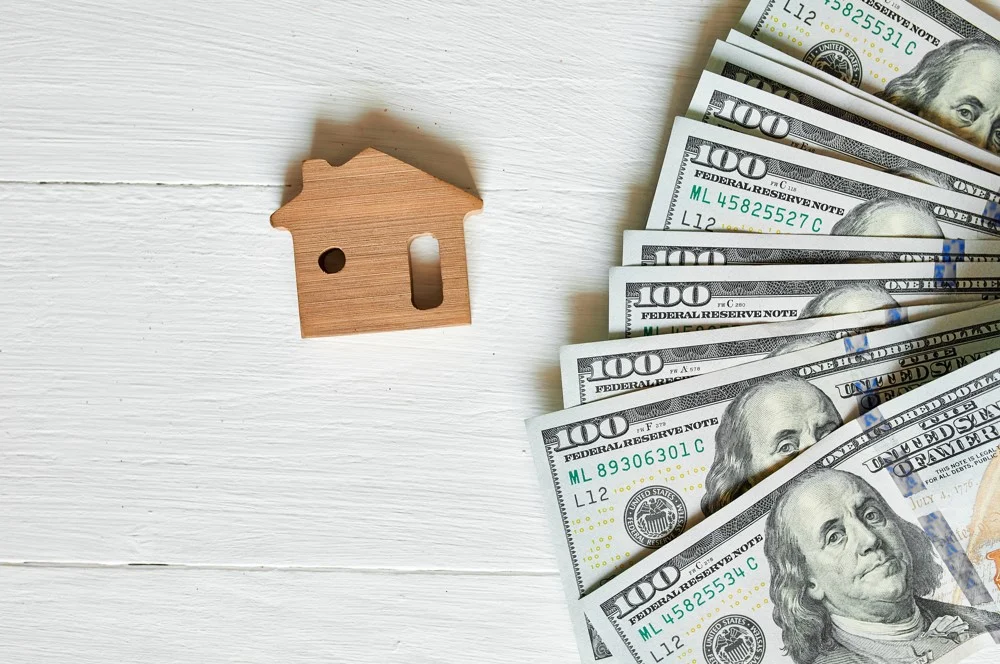Real estate is not immune to economic uncertainty, but we see investors who are quite aware of some of the benefits the current situation offers with investing in a house and lot for sale. Everyone agrees that the Asia Pacific region offers some truly great prospects for those with the appropriate strategy and resources.
Real Estate Investment and How It Affects Many Investors?
Investing in real estate is the practice of buying property for investment purposes rather than as a primary residence. It is any land, building, piece of infrastructure or other substantial items that is often motionless yet transferable.
Real estate investments are diverse and expand beyond our properties. In addition to actual homes, real estate investors have a variety of other options. If you wish to invest in real estate, keep in mind that there are numerous alternatives to buying, financing, and managing actual properties.
In comparison to other nations, real estate is less expensive in the Philippines. It’s also advantageous that anyone can invest in real estate, license or no license. Unlicensed brokers may also participate in pre-sales, which exempts them from licensing requirements for buying and selling residential condos or apartments. This develops into a sound plan to earn money.
Different types of real estate investments

Residential Real Estate
Investments in residential real estate house and lot for sale are often active, meaning you will probably need to make large financial and labor sacrifices. However, they have the potential to generate sizable profits and generate income.
When maintaining a rental property, some investors prefer to live on-site, which is known as an owner-occupied multifamily property, though this is by no means needed. As an investor, you gain money through rental revenue and/ or through appreciated property value if you finally decide to sell the.
Flipping houses
One of the most popular investing strategies is flipping houses. To flip a property, you buy one that needs work, make the necessary improvements, and then offer it.
Vacation rental
Vacation rental property ownership is comparable to long-term rental property ownership. You own a home, usually in a tourist-friendly area, and rent it out to transient guests.

Micro-flipping
The milder variation of house flipping is called micro flipping. You acquire houses that are offered below their potential market value and swiftly resell them, frequently without making significant modifications.
Commercial real estate
Investments in real estate that are typically not residential are referred to as commercial real estate. Commercial real estate investments include hotels, distribution facilities, office buildings, and retail outlets. These kinds of investments, which entail owning and renting out space to a company, are frequently regarded as active investments as well.
Raw Land
A piece of property that has no structures, roads, plants or anything else on it is referred to as raw land. Investing in vacant land is typically less expensive than doing so in developed land, and like other types of real estate, it also increases in value with time. Compared to many other assets, raw land is straightforward to obtain. It is significantly less expensive than developed land, buildings, or homes.
Real Estate Trust Investments
Companies that manage various real estate investments are known as real estate trust investments or REITs. REITs are regarded as passive investments, in contrast to a number of the earlier alternatives.
Real estate crowdfunding
is a novel technique that enables individuals to pool their cash and participate in opportunities they wouldn’t be able to afford on their own. Typically, this happens online. Similar to REITs, this investment strategy also qualifies as passive income because it requires little initial capital.
What Is Real Estate Market and Real Estate Properties?
An investigation of the current value of properties similar to the one you want to purchase or sell is called a real estate market also referred to as a comparative market analysis. In order to grasp the current market, how much you can charge for rent, and other factors, a real estate market study should always be conducted before buying or selling a property.
The term “real property” is less frequently used, Real property is a more general term that refers to both the actual land and any structures or other improvements that are affixed to it. It also includes any changes to the land as well as the rights to use and enjoy the land. The physical property comprises real estate as well as a number of additional rights. A general word is used to group property rights as they apply to real estate under this collection of rights. It basically gives property owners the freedom to use their land however they see appropriate.
There are typically two sorts of real estate. Developed or potentially developed land for commercial use is referred to as commercial property. Residential properties are defined as land that has been developed for habitation or is capable of being so. In general, it is forbidden to use residential property for business reasons.
How Do Property Owners Value Their Property?

An increase in a property’s worth over time is referred to in real estate as appreciation/ property value appreciation. On a macro level, inflation, an increase in job prospects in your market, and general societal growth could all contribute to real estate appreciation. With home upgrades, you can increase appreciation value.
Consider how useful this is to real estate investors: if you buy a house or rental unit, its value may rise over time. This increase in property value or regular rentals might be thought of as a profit when you sell your house or as an increase in the amount you make each month from renting out a space.
Here are some characteristics that contribute to rising property values over time:
- Location– Our actual place of residence, our home, doesn’t actually increase in value. In actuality, a home’s physical attributes tend to deteriorate over time. And a lot of factors can affect whether the location boosts or inhibits property values.
- Condition – A modern home will be more valuable than an outdated one because the worth of your home’s physical features depreciates over time. Based on the amount and complexity of repairs needed, home appraisers assign a condition rating to your property. Your home’s property value increases when you keep it up in terms of design and appeal.
- Upgrade – Modern features or layouts added to a home, attract more homebuyers and greater offers. E.g. Landscaping, adding new appliances, new paint, minor fixtures and etc.
- Healthy Economy– Economic expansion also raises property values in the same manner. More people are able to afford homeownership as job rates rise. When consumer confidence and a strong economy coexist, more buyers enter the market, driving up demand and home values. The economy is driven by rising property values. Homeowners who benefit from rising property values are wealthier, and their increased spending in turn boosts the economy.
- Crisis– Due to a reduction in supply and an increase in demand from displaced homeowners, the value of unaffected properties increases when dwellings are destroyed by natural or man-made disasters. Property values in nearby communities would be true, local residents who are accustomed to natural catastrophes are willing to pay higher homeowner’s insurance premiums to stay in the area.
Benefits of Investing in Real Estate

There are several strong reasons why real estate investing is a popular career path. Real estate investments offer several benefits over other employment possibilities, but they require commitment and planning.
What remains after paying your mortgage, taxes, insurance, and any necessary repairs is your cash flow. Investing in real estate is one of the finest methods to produce income flow. Investors can cover their costs and put money back in their pockets with the monthly revenue that rental properties produce. The investment’s initial capital is repaid over time, and a profit is realized.
You must repay any money you borrow with interest if you do so in order to conclude a real estate transaction. You move closer to eliminating your principal payments with each transaction. In the same property, you are accumulating wealth and equity simultaneously. Lastly, your money does not travel as far as it should due to inflation. In contrast, real estate acts as a protection against inflation. Real estate reacts proportionately to inflation, unlike practically all other types of investments. Rent prices and house values rise in tandem with inflation.
It’s not the only avenue to invest, real estate is one of many. Other investment opportunities abound, and each has a unique mix of advantages and disadvantages. The best investment strategy for you will depend on your goals, as well as the amount of effort and commitment you are willing to put up to ensure a successful investment.
Real estate vs Major stock exchanges
You gain ownership in a firm by purchasing stock. You’ll make money when the situation is favorable. You can notice decreasing finances when the company’s earnings decline during difficult economic circumstances.
Similar to real estate, stock financing enables you to leverage your equity by buying more shares altogether. The drawback is that you can experience a “margin call” if the stock ownership declines. In this case, you must deposit funds to your account to raise the equity relative to the borrowed amount, which has fallen below a predetermined level. If you don’t the brokerage firm can sell the shares to recoup the money it gave you from the sale of the stock. Stocks’ benefits include high liquidity, speed, and simplicity in sales. They can even be moved into a retirement account tax-free up to the point at which you begin to withdraw the funds, making them flexible, yet the disadvantage of stocks is bankruptcy. Bankruptcy is always on the active stock investor’s mind, as it should be as your investment will be lost in this situation
Financial Security With Real Estate Investment
Equities and debts are the two main types of securities that can be generally defined. However, some hybrid assets incorporate features of both stocks and bonds.
Equity security is a share of a capital stock, which includes both common and preferred stock, that symbolizes the ownership stake that shareholders have in a legal body (such as a corporation, association. or trust). Although equity securities frequently pay out dividends, holders of these assets are normally not entitled to monthly payments; instead, if the value of the shares has improved, they may be able to realize capital gains upon selling them.
A debt security is a representation of borrowed mutual funds that must be repaid, with terms defining the amount of the loan, the interest rates, and the expiration or renewal date. Debt securities can be unsecured or secured and if secured, they may have a contractual priority over other debt securities in the event of bankruptcy.
What Makes South Luzon the Real Deal for Real Estate Investing?
One of the factors behind the ongoing influx of investors who have been establishing facilities in this are is the region’s rapid economic expansion. The area’s consistent economic activity also makes it a desirable investment location for mixed-use complexes, shopping malls, office buildings, and other facilities.
In CALABARZON, the provinces benefit from the city’s developing way of life. Together with the modern conveniences you would expect to find in a capital city, these communities also have them. You won’t find many open areas in Metro Manila, yet these contemporary developments are abounding with them. Trees, larger roads, and local parks are also accessible.
Also, as a result of government investments in bettering the transportation system, it is now simpler for individuals to commute to and from South Luzon. These changes include the development of new airports, bridges, and roadways.
South Luzon has a forward-looking mentality, but the area maintains its roots by preserving its natural beauty. It is well recognized for its stunning beaches, sweeping mountains, rich vegetation, and cool environment making it an attractive spot for outdoor enjoyment or a tranquil place to relax, or even both.
Related Blog: Why Are Investors Investing in the Asia Pacific Region?


